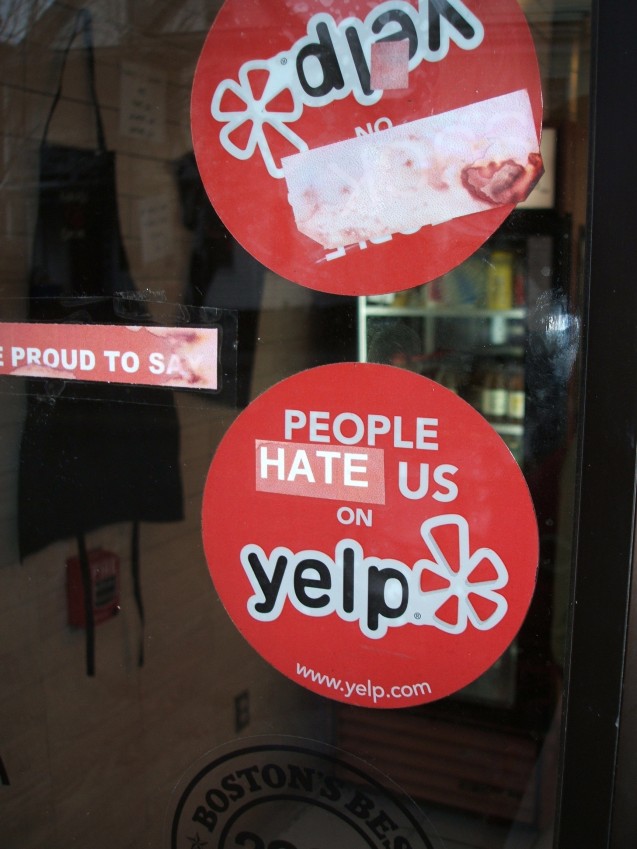The Wall Street Journal reports an Internet free-speech case against online review site Yelp is headed to the Virginia Supreme Court this month.
Lawsuits were initially filed by a carpet cleaning company whose business reportedly dropped by 30% following a string of negative reviews.
The owner of the carpet cleaning company believes he was a victim of fraudulent reviews. He is not alone, as The Federal Trade Commission reportedly received more than 2,046 complaints filed about Yelp from 2008 through March 4 of this year.
The majority of the complaints are from business owners who claim to have received fraudulent reviews, with some even claiming the fraudulent reviews began to flow in after turning down a pitch to advertise on Yelp.
In response to these claims, Yelp spokeswoman Kristen Whisenand said:
“Our recommendation software doesn’t punish people who don’t advertise… There has never been any amount of money you can pay Yelp to manipulate reviews.”
The owner of the carpet cleaning business filed lawsuits against seven reviewers who he believe are fake based on the time and location of the reviews. Yelp has denied his request to reveal the true identities of the fake reviewers and have since been held in contempt.
In January Yelp appealed to the Virginia Supreme Court, arguing that the reviews are protected under the First Amendment and the evidence presented wasn’t enough to prove the reviewers were fake.
The Wall Street Journal states consumer-review websites are shielded from liability for defamation claims stemming from user comments under the Communications Decency Act of 1996. Business owners believe that’s not fair.
This month the Supreme Court could issue an order granting or denying Yelp’s appeal, or schedule a hearing, which could take place in the next 90-120 days.
The Wall Street Journal article also has a number of quotes from other business owners who have had their reputation damaged from negative reviews on Yelp.
We’ll have to wait and see who prevails in the case of free speech vs. fairness. To date, Yelp remains unscathed in every instance that a business owner has taken legal action after having their reputation damaged by an online review.
Should Yelp be held accountable for not removing alleged fake reviews and/or revealing the true identity of reviewers? I’d like to hear what you think in the comments section.






![AI Overviews: We Reverse-Engineered Them So You Don't Have To [+ What You Need To Do Next]](https://www.searchenginejournal.com/wp-content/uploads/2025/04/sidebar1x-455.png)